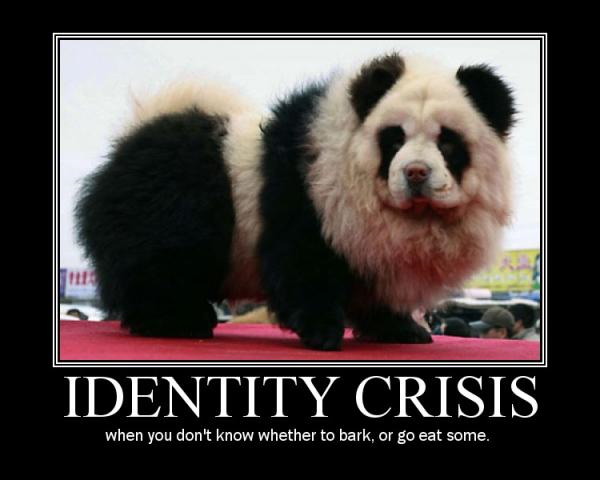 |
| Pictured: Identity |
Nothing in our western culture remains stable for too long. It is ever-changing and what seems normative one second will be an oddity the next. Thanks to language, which seems to like making things even more complicated, we cannot even begin to describe who we are-because there may or may not be a word for that (but for some reason we have a word for that piece of metal between the wood of a pencil and the eraser).
As stated by Barker, "we learn to use a language that was in use before we arrived." Of course words are invented everyday. Sometimes this helps us articulate our feelings since there was no word for it before (bromance) and sometimes it just helps us embiggen our vocabulary by making a perfectly cromulent word up (embiggen, cromulent).
 | ||||
| Hans Sprungfeld, better known as Jebediah Obadiah Zachariah Jedediah Springfield |
Words, culture and identity are definitely woven together, interspersed to either compliment each pther or completely throw everything out of whack. For instance, the word "gay" has long since been forgotten to mean "happy," and in the 90s, when something was "the bomb" far be it from being a terrorist threat in today's post 9/11 world, but rather it was cool and hot, and they most definitely did not suck and blow (the 90s lingo was full of conundrums). Back to the topic, gay is a word used as a cultural identity, a social one in fact. Simply put, it is what makes you the same and different from everyone else. The problem is that social "norms" are what Barker calls "snapshots" of the time and place you are in. Wherein the 90s, currency in the schoolyard for me was a handful of pogs and slammers, now I would be hardpressed to find a nine year old who knows what they are.
| Luckiest kid ever! |
Cultural Studies makes several things clear about culture and identity: they are not universal and they are definitely not eternal.
For an example of the latter, just take a look at the picture above. Notwithstanding the popularity of pogs in the mid 90s, relevance is all but notional now. As for the universal part, the book gives a great example of identity standards not being universal when it comes to feminism. It talks about a film, Warrior Marks, which critiques clitoridectomies in Africa. I recall watching this film in the 10th grade in my History class. It was graphic, it was brutal and it was unforgettable. I remember think it was a cruel device for the women, but that was the silly westerner in me. As the book states "the adult African women in the film confidently defend clitoridectomies as a necessary part of their traditions and sacred practices." The truth be told, this will forever remain a fact. You cannot make culture or identity global. As the book states, that would be "essentialist."
Descartes' quote "I think therefore I am" is used almost always to represent the awareness of self. Since "I" is universal, the social indications of it are not. In high school "I" was often mistaken for a Goth because I wore band shirts. "I" am most definitely not. What comes of social, personal, internal and external assumptions of the self is only an illusion so-to-speak. They are never going to be definitive, as with time, they will surely change.
 |
| Proof that the self is ever changing |
No comments:
Post a Comment